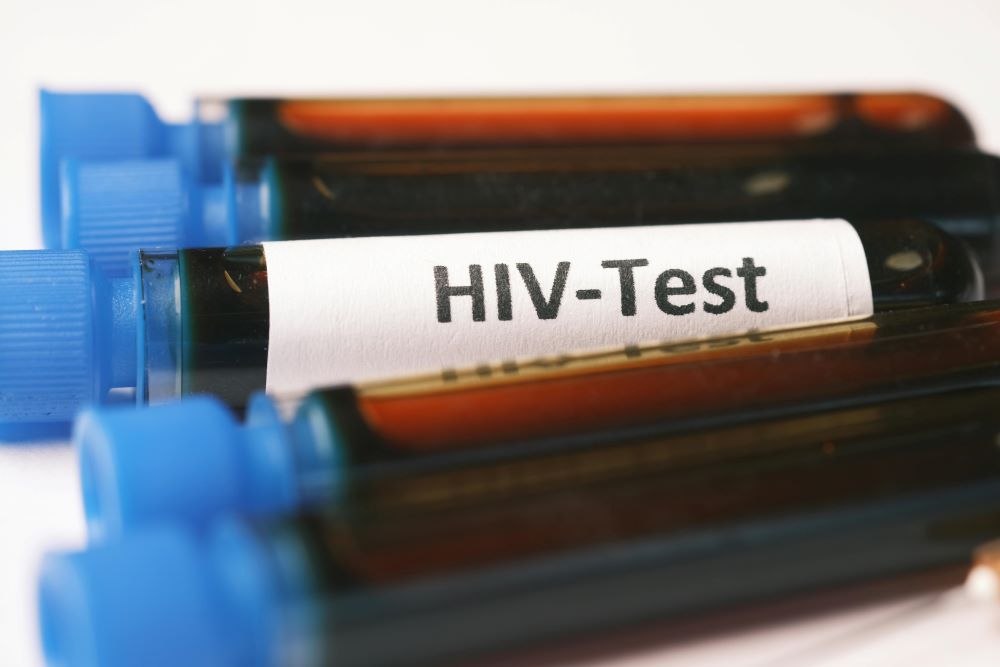Older individuals with the virus face unprecedented challenges in getting the care they need.
Malcolm Reid recently marked the anniversary of his HIV diagnosis on social media, posting on Facebook, “Diagnosed with HIV 28 years ago, AND TODAY I THRIVE.” The post was made in April and received numerous responses. An advocate for people with the human immunodeficiency virus (HIV), Reid stated he’s happy he made it to age 66, but with aging has come a host of health issues. He’s a kidney cancer survivor and currently juggles medications to treat HIV, high blood pressure, and Type 2 diabetes. “It’s a lot to manage,” he said.
It’s common knowledge that, with or without this diagnosis, age can bring with it a decline in both mental and physical health. Aging with HIV only increases these risks, often accompanied by developing diabetes, depression, and heart disease at an even younger age.
Research has found that more than half of all people living in the U.S. who have also been diagnosed with this life-threatening virus, like Reid, are currently in their 50s or older, and experts estimate that 70% of people living with the virus will fall in that age range by 2030. Yet the U.S. healthcare system simply isn’t prepared to meet the needs of the more than half a million people with HIV who live beyond 50. Advocates, medical personnel, government officials, research teams, and other experts worry that funding constraints, an increasingly dysfunctional Congress, holes in the social safety net, untrained providers, and workforce shortages will continue to leave people aging with HIV vulnerable to poorer health.

The development of antiretroviral therapies, drugs that reduce the amount of virus in the body, can be credited for the longer lifespans of individuals with HIV. However, aging with HIV brings with it a greater risk of inflammatory diseases and the long-term use of harsh medications. Older people often must coordinate care among many specialists and are frequently on multiple prescriptions. Some people have also reported facing the “dual stigma” of ageism and anti-HIV bias, thus living with high rates of anxiety, depression, and substance use disorders (SUDs). Moreover, many patients have watched loved ones succumb the effects of the HIV/AIDS epidemic, and grief, loneliness, and feelings of isolation can increase cognitive decline and other medical conditions in older adults, leading some to stop treatment altogether.
“It isn’t an easy problem to solve,’ explained Dr. Heidi Crane, an HIV researcher and clinician at the University of Washington.
“I think we’re at a tipping point,” added Dr. Melanie Thompson, an Atlanta internal medicine physician who specializes in HIV care and prevention. “It would be very easy to lose the substantial amount of the progress we have made.”
The Ryan White HIV/AIDS Program, the federal initiative for low-income people with HIV, serves more than half of the Americans living with the virus, and nearly half of its clients are 50 or older. And yet, the program’s budget has barely increased since 2013 even though 50,000 new patients have been added since that time. Funding has remained at $466 million for several years now.
“Many of the people aging with HIV were pioneers in HIV treatment,” added Laura Cheever, who oversees the Ryan White program for the Health Resources and Services Administration (HRSA), adding, “Researchers have a lot to learn about the best ways to meet the needs of the population.”
Some 40% of people living with HIV also rely on Medicaid, the state-federal health insurance program for low-income people. So, recent the decision by 10 states not to expand Medicaid can leave older people with HIV few places to seek care outside of Ryan White clinics. Without options, the problem is bound to only get worse.
“New strategies can’t come quickly enough,” said Jules Levin, executive director of the National AIDS Treatment Advocacy Project. “It’s tragic and shameful that elderly people with HIV have to go through what they’re going through without getting the proper attention that they deserve.”
Homing in on these societal issues and hearing stories like Reid’s serve as a poignant reminder of the challenges faced by those aging with HIV, highlighting a need for the healthcare system, policymakers, and society as a whole to address the unique challenges of seniors living with the virus. Perhaps a more comprehensive focus on investing in research, improving access to care, and combating stigma is a good place to start.
Sources:
People with HIV are living longer, but as they age, health challenges increase : Shots


Join the conversation!